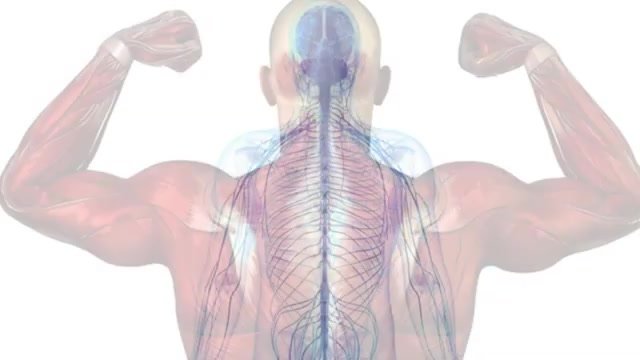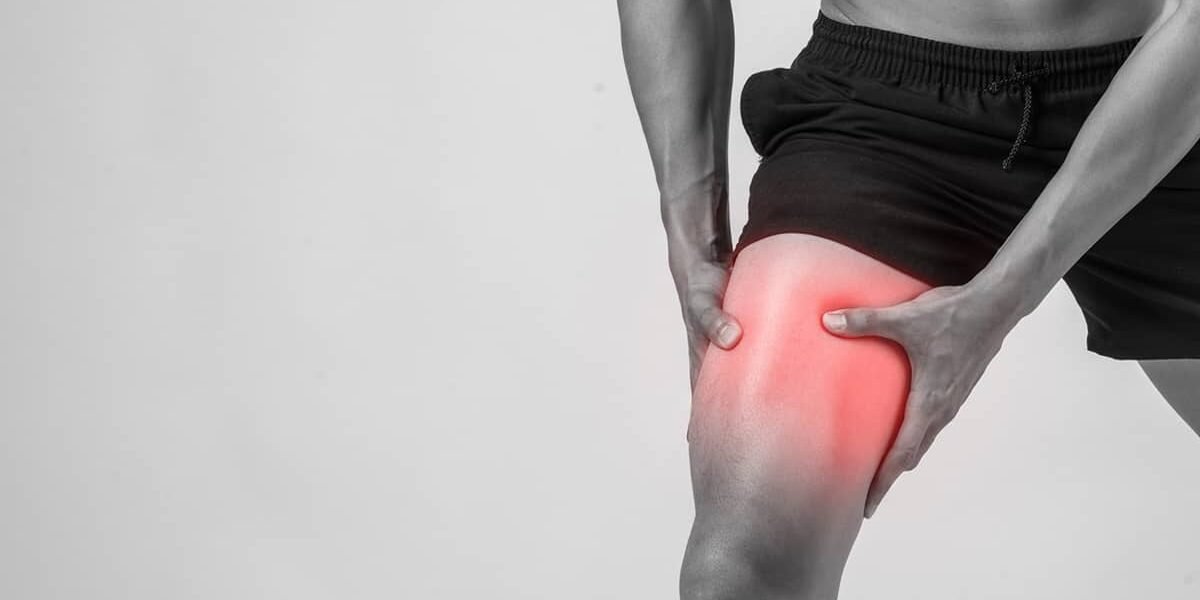Table of Contents
Say goodbye to debilitating muscle cramps with a surprising natural remedy apple cider vinegar. This article explores the science behind why apple cider vinegar works for muscle cramps and how to incorporate it into your routine.
Apple Cider Vinegar for Muscle Cramps

so today I’m going to talk about why apple cider vinegar works for muscle spasm now typically when someone has a muscle spasm they usually go for electrolytes
and a lot of times that actually may work but when it doesn’t work you may want to try some apple cider vinegar to your diet and I’m going to tell you why that may help you
A deeper look at the muscle

now before I get into that this is a diagram of a muscle and two tendons okay so you have the tendons that attach to bones and then you have the muscle and in the tendon you have this little receptor called the Golgi tendon organ that picks up information from the load of the muscle
so there’s there’s information being sent from the muscle based on tension that is being picked up by this tendon and carried to the nervous system to the spinal column up to the brain to associated muscles and then back up to this muscle
so when you lift something up at a certain weight and you feel the heaviness of that that’s all being sensed and perceived by this tendon and the information sent to the brain and gives you a feedback loop of how much resistance that you need to use to actually lift it up
- Muscle structure: muscle body and two tendons
- Golgi tendon organ: sensory receptor in tendons
- Information flow: muscle tension → tendon → nervous system → brain → associated muscles
- Feedback loop: helps determine required resistance for lifting
Acetylcholine and apple cider vinegar
there’s a lot of control over this muscle dynamic from the nervous system okay and the receptors and there’s certain chemical compounds that you need that communicate between the muscles and the nerve
and one of the big ones is acetylcholine and it just so happens that apple cider vinegar can contribute to the formation of this chemical
- Nervous system controls muscle dynamics
- Acetylcholine: key chemical for muscle-nerve communication
- Apple cider vinegar contributes to acetylcholine formation
Electrolytes for muscle spasm

we need electrolytes which are electrically charged minerals for the electrical part of this problem you need a set of choline which is a neurotransmitter to allow that to work and lastly if your pH is too alkaline one of the symptoms for alkalosis is cramping
- Electrolytes: electrically charged minerals
- Acetylcholine: neurotransmitter for muscle function
- pH balance: alkalosis can cause cramping
Your pH and muscle cramping

one remedy for cramping in general would be just to acidify the body to bring the pH down a little bit so then this muscle contraction and relaxation can happen normally if you have a cramp in your body and you’re wondering what’s going on yes you want to look at the electrolytes but you also want to look at the pH and you may need to acidify it without cider vinegar

but you can also use pickle juice because that’s an acidifier as well as kombucha tea but the reason apple cider vinegar might work a little bit better than these other ones is that it can help increase this neurotransmitter and that’s involved in the nerve connection to that muscle
- Acidifying the body can help with cramping
- Consider both electrolytes and pH for muscle cramps
- Acidifiers: apple cider vinegar, pickle juice, kombucha tea
- Apple cider vinegar may be more effective due to neurotransmitter support
How to take apple cider vinegar
if you’re taking electrolytes and you still have cramps don’t forget about the apple cider vinegar you can dilute it by taking a tablespoon and a glass of water 8 to 12 ounces drink that a couple times a day
- Dosage: 1 tablespoon apple cider vinegar
- Dilute in 8-12 ounces of water
- Consume 2-3 times daily
Summary
- why apple cider vinegar works for muscle cramps or muscle spasms. Many times when a person has muscle cramps, they usually increase their electrolytes. In many cases, that will work. But, if it doesn’t work, you may want to try apple cider vinegar.
- In the tendon, you have a little receptor called the Golgi tendon organ. This receptor picks up information from the load of the muscle. There’s information being sent from the muscle based on tension that’s being picked up by this tendon. The information is then carried through the nervous system, to the spinal collum, up to the brain, then to associated muscles, and back to the receptor.
- There is a lot of control over the muscle dynamic from the nervous system and the receptors. There are certain chemical compounds that you need that communicate between the muscles and the nerve. One of the big ones is acetylcholine. Apple cider vinegar can actually contribute to the formation of acetylcholine.
- We need electrolytes, which are electrically charged minerals for the electrical part of this problem. We need acetylcholine, which is a neurotransmitter, to allow that to work.
- Also, if your pH is too alkaline, you may get muscle cramping. One remedy for cramping would be to acidify the body.
- Pickle juice and kombucha tea may help acidify the body. But, apple cider vinegar may work even better because it may help increase acetylcholine.
- You can dilute apple cider by mixing one tablespoon of apple cider vinegar in an 8-12 oz. glass of water. Consider drinking this mixture a couple of times a day.
DATA
https://pubmed.ncbi.nlm.nih.gov/32459412
FAQ
Is apple cider vinegar good for muscle spasms?
Apple cider vinegar (ACV) may be beneficial for muscle spasms due to its potential to aid in the production of acetylcholine, a neurotransmitter essential for muscle function. When electrolytes alone do not alleviate cramps, ACV can serve as a natural remedy by helping to acidify the body, which may counteract symptoms of alkalosis, a condition that can lead to muscle cramping. Additionally, ACV is thought to restore electrolyte balance, which is crucial for muscle contraction and relaxation[1][4].
How do I stop a muscle spasm ASAP?
To stop a muscle spasm quickly, consider the following methods:
- Stretch the affected muscle: Gently stretch the muscle that is cramping by pulling it in the opposite direction.
- Massage: Use your hands or a foam roller to massage the area, which can help relax the muscle.
- Apply heat: A warm compress or heating pad can help loosen tight muscles.
- Use cold therapy: After the initial pain subsides, apply an ice pack to reduce inflammation.
- Stay hydrated: Drink water or an electrolyte-rich beverage to replenish lost fluids[2][3][5].
What can I drink to stop muscle spasms?
Drinks that may help relieve muscle spasms include:
- Pickle juice: Known for its high electrolyte content, it can provide rapid relief from cramps.
- Coconut water: This natural beverage is rich in potassium and electrolytes.
- Apple cider vinegar diluted in water: This may help restore pH balance and electrolyte levels.
- Sports drinks: These are designed to replenish electrolytes lost during physical activity[2][3].
What can I take for muscle cramps and spasms?
Over-the-counter options for muscle cramps include:
- NSAIDs: Nonsteroidal anti-inflammatory drugs like ibuprofen can reduce pain and inflammation.
- Electrolyte supplements: Magnesium, potassium, and calcium can help prevent cramps.
- Natural remedies: Herbal teas, such as chamomile, may act as natural muscle relaxants.
- Prescription medications: In severe cases, doctors may prescribe muscle relaxants for chronic spasms[2][5].
How to stop leg cramps immediately
To stop leg cramps immediately, try these techniques:
- Stretch the leg: Stand and put your weight on the affected leg while bending your knee.
- Massage the area: Gently rub the cramped muscle to promote relaxation.
- Apply heat or cold: Use a heating pad or ice pack as needed to alleviate discomfort.
- Stay hydrated: Drink water or an electrolyte-rich beverage to help relieve cramps[3][5].
Apple cider vinegar for leg cramps at night
Using apple cider vinegar for nighttime leg cramps can be effective. It can be consumed in a glass of water before bed to help maintain electrolyte balance and possibly reduce the likelihood of cramps during the night. The acetic acid in ACV may aid in the absorption of minerals that support muscle function[1][4].
How to use apple cider vinegar for leg cramps
To use apple cider vinegar for leg cramps, follow these steps:
- Dilute ACV: Mix 1-2 tablespoons of apple cider vinegar in a glass of water.
- Drink before bed: Consume this mixture in the evening to help prevent cramps during sleep.
- Topical application: Some people apply diluted ACV to the skin over the cramped area for localized relief[1][4].
How to stop muscle cramps fast
To stop muscle cramps quickly, employ these strategies:
- Stretch the cramped muscle: This helps to relieve tension.
- Massage the area: This can improve blood flow and reduce pain.
- Apply heat or cold: Depending on the situation, either can help alleviate discomfort.
- Hydrate: Drink fluids, especially those containing electrolytes, to help restore balance[2][3].
Salt under tongue for leg cramps
Placing salt under the tongue can be an effective remedy for leg cramps. The sodium can help quickly replenish electrolytes and may relieve cramping within minutes. This method is often used by athletes to combat sudden cramps during physical activity[2][3].
Apple cider vinegar for leg and foot cramps
Apple cider vinegar can be used for both leg and foot cramps by either drinking it diluted in water or applying it topically. Its potential to balance pH levels and replenish electrolytes makes it a popular choice for those experiencing cramps in these areas[1][4].
How to stop leg cramps immediately home remedies
Home remedies for immediate relief from leg cramps include:
- Stretching the leg: Gently stretch the affected muscle.
- Applying heat: Use a heating pad or take a warm bath.
- Massaging the muscle: This can help relax the muscle.
- Hydration: Drink water or electrolyte-rich beverages.
- Using apple cider vinegar: Either drink it or apply it topically for relief[2][3][5].
Can apple cider vinegar cause leg cramps?
While apple cider vinegar is generally safe for most people, excessive consumption may lead to digestive issues or an imbalance in electrolytes, potentially causing cramps. It’s important to use it in moderation and consult a healthcare professional if you experience adverse effects[4][5].




